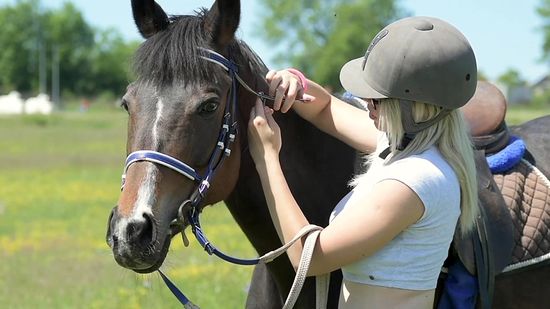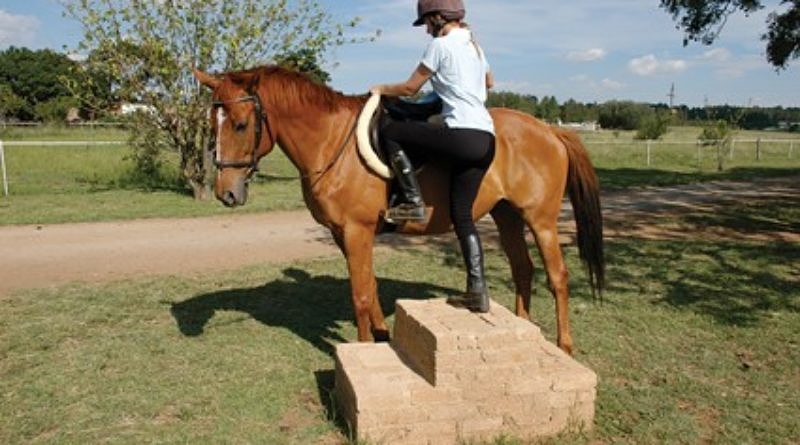Horses, like any other living creatures, require adequate rest to stay healthy and thrive. However, their unique biology and behavior mean that creating a comfortable and safe environment for rest is crucial. Several factors influence how long a horse can lie down and how comfortable they are during this rest. Let’s explore the key influences on a horse’s willingness and ability to lie down and rest deeply.
>> SEE MORE:
- How Long Can a Horse Lay Down Before it Dies?
- Exploring Equine Slumber: Uncover the Secrets of How Horses Sleep
Contents
Bedding and Surface Quality
The surface on which a horse lies plays a significant role in their comfort. Bedding materials such as straw, wood shavings, or specially designed equine mats provide cushioning that reduces pressure on the horse’s joints. A soft, well-maintained surface encourages horses to lie down, as it offers support and minimizes discomfort. Conversely, a hard or rough surface can deter lying down, preventing the horse from achieving the REM sleep necessary for overall well-being.
Health and Pain Management
Health conditions such as arthritis, laminitis, or injuries can significantly impact a horse’s ability to rest comfortably. Horses suffering from pain may find it challenging to lie down or get up, reducing the time spent lying down. Addressing these health concerns through proper veterinary care, pain management, and environmental adjustments (such as softer bedding or cushioned surfaces) can help ensure the horse gets adequate rest and recovery.

Herd Dynamics and Social Environment
As herd animals, horses are deeply influenced by their social environment. Horses with lower social status in a group may feel insecure or stressed, leading to less time spent lying down. On the other hand, a secure and comfortable herd dynamic can create a relaxing atmosphere, encouraging the horse to rest more. Horses are more likely to rest in a peaceful environment where they feel safe, both physically and socially.
Space Availability and Stable Design
The size and design of the stable are also critical in determining how comfortably a horse can lie down. In cramped or poorly designed stalls, horses may not have enough space to lie down fully or may be at risk of injury. A well-designed stable that allows ample room for movement and natural behaviors ensures the horse has a safe, comfortable space to rest. Spacious stables allow the horse to lie down without the risk of hitting walls or being cramped, leading to more restful sleep.
Age and Physical Condition
A horse’s age and physical condition greatly influence its ability to rest comfortably. Older horses or those with musculoskeletal issues might struggle to lie down or rise again, which can decrease the time they spend resting. It’s important to adjust their care routines accordingly, offering softer bedding, joint support supplements, and accommodations for easier movement. This adjustment can help ensure they get the rest they need for better health and comfort.
Training, Workloads, and Daily Routines
A horse’s daily routine, including its training and workload, affects its need for rest. Horses with demanding work schedules may require longer periods of rest to recover. Similarly, a consistent daily routine helps regulate the horse’s natural circadian rhythms, promoting better sleep and overall comfort. Horses that are overworked or experience inconsistent routines may have difficulty relaxing enough to lie down comfortably, affecting their health and behavior.
Conclusion: Creating an Optimal Resting Environment for Your Horse
Horses, like humans, need a secure, comfortable environment to rest and recharge. The ability to lie down for deep, restorative sleep is essential for their physical and mental well-being. Factors such as bedding quality, health status, social environment, available space, and age all influence a horse’s ability and willingness to lie down. By understanding these factors and adapting your horse’s environment and care routines, you can promote better health, relaxation, and overall comfort. https://hearttohorses.com/
A well-rested horse is not only healthier but also happier and more productive. As a horse owner or caretaker, being attentive to these needs and making the necessary adjustments ensures that your horse thrives and remains in optimal condition for performance and quality of life. Compassionate care and a thoughtful approach to equine management are the keys to unlocking the comfort that horses deserve.

